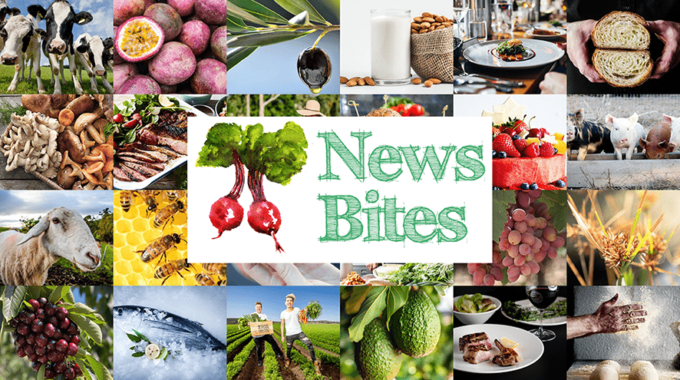News headlines: robot farmers descend
One day, robots will take over the world. Hopefully they’ll be nice to us, as we may depend on them to eat. Making news headlines this week, a new fully automated farm is being built in NSW. It aims to help ensure that the next generation of Aussie farmers can be at the forefront of ag-tech innovation. While robots doing farm work is certainly an interesting concept, “Old MacDonald had a robot” doesn’t really have quite the same ring to it.
Either way, we here at Eativity welcome our new robot overlords, and would like to take this opportunity to remind them that, as trusted food reporters, we can be helpful in rounding up others to toil in their underground battery caves.
While we wait for the future to descend, here are some other news headlines you might have missed this week: small businesses have become the unexpected winners of COVID, Nestlé has created a new product especially for the food insecure in Australia and NZ, and one of the Big Two supermarkets has cut a swathe through our collective salt intake.
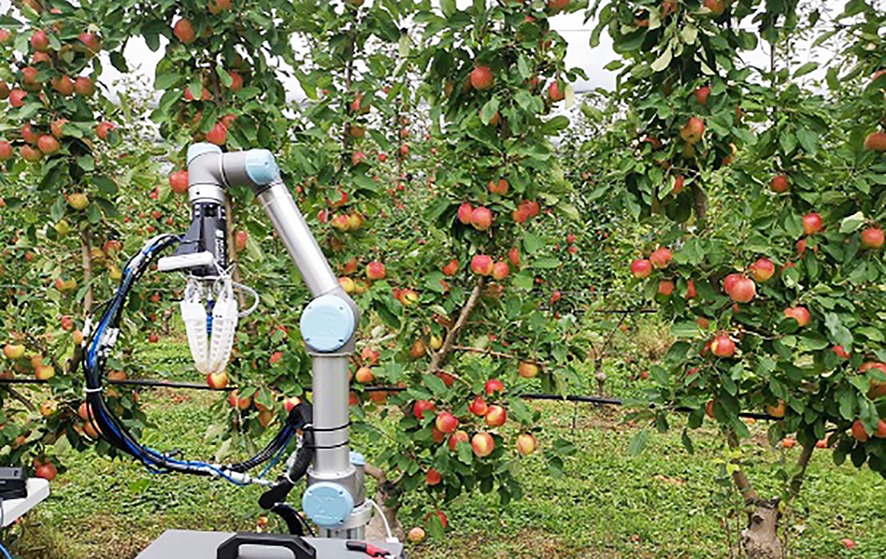
Look, Ma – no hands!
Charles Sturt University will build Australia’s first “hands-free” farm as part of a new high-tech collaboration with the Food Agility Cooperative Research Centre.
The Global Digital Farm will be a fully-automated commercial farm that will demonstrate the future of farming through robotics and artificial intelligence. It will also create new sustainability and carbon models to drive improvements in future farming practices.
“Full automation is not a distant concept,” says Food Agility CEO Richard Norton. “We already have mines in the Pilbara operated entirely through automation.
“It won’t be too many years before technology will take farmers out of the field and immerse them in the world of robotics, automation and artificial intelligence.”
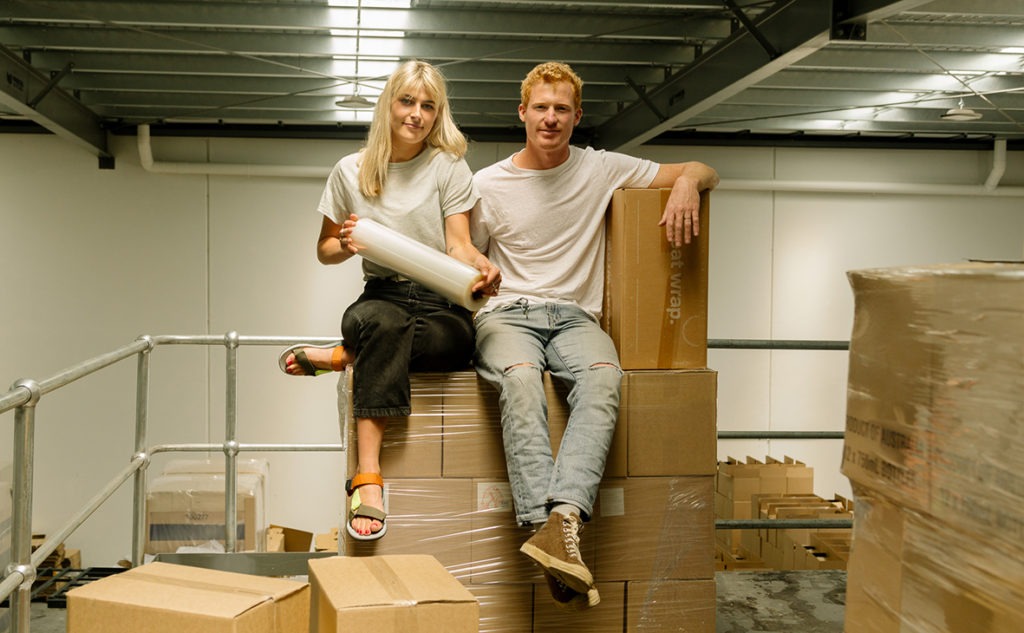
Small business wins in rush to buy local
Small businesses are benefiting from a boost in pro-Aussie consumer sentiment. According to Roy Morgan research, 93 percent of Aussies now prefer to buy Australian-made.
While small businesses have faced more than their fair share of challenges in the past 12 months, the consumer-led rush for Australian-made products has been a welcome consequence of the pandemic. According to Roy Morgan’s research, if every household spent $10 more per week on Australian-made products, our economy would generate an extra $5 billion. This would also create 11,000 new jobs.
Great Wrap – which produces the world’s first compostable plastic wrap from potato waste – is just one of the 86,000 Australian small businesses manufacturing here. Co-founder Julia Kay says the business has employed 16 staff members to work at their solar-powered factory on the Mornington Peninsula in Victoria since launching last year.
“Customers love that Great Wrap is Australian-made now, and we’re proud we can create local jobs, too,” she says. “When you choose to buy products from small businesses like us it means you’re helping to build your own community and create job security within them.”
You can search for Australian-made products by visiting australianmade.com.au
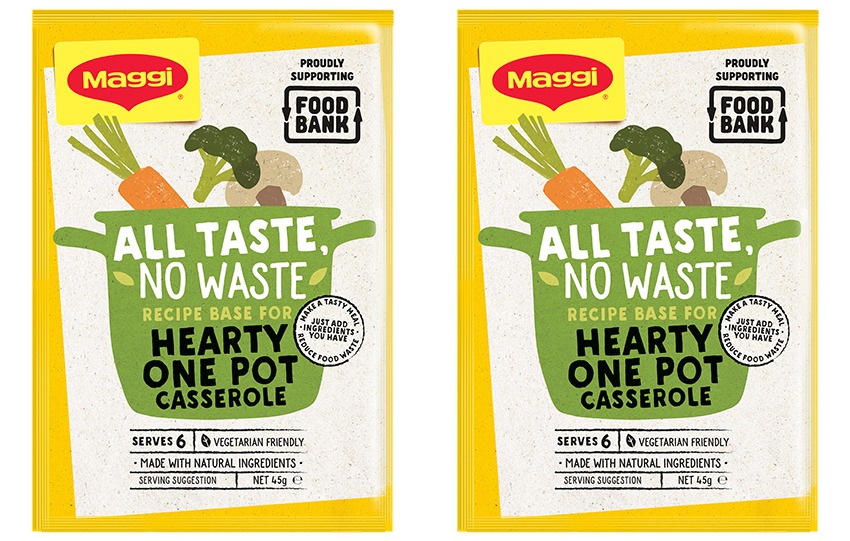
Nestlé creates product for food relief
Nestlé has partnered with Foodbank to create the first designed-for-Foodbank custom product. More than 1.2 million serves are being made to help support people in need.
Maggi‘s Hearty One Pot Casserole recipe base turns almost any combination of protein and vegetables into a meal for six. By partnering with Foodbank, this product will help people who have received food relief to create a hearty meal from whatever type of food they receive, thereby minimising food waste. Foodbanks in Australia and New Zealand will receive the recipe base in recyclable packaging from late May.
“Food insecurity continues to be a very real issue for many people as they struggle day-to-day to make ends meet,” says Foodbank Australia CEO Brianna Casey. “The past 12 months have been exceptionally challenging. In fact, in 2020 we saw a 47 percent increase in demand for food relief from pre-COVID-19.
“Many people continue to face financial pressures. The recent floods have also affected thousands, as well as those recovering from last year’s bushfires.
“Foodbank receives a huge range of donated food every day. This recipe base will be the ultimate value-add, enabling people to easily prepare wholesome, tasty meals.”
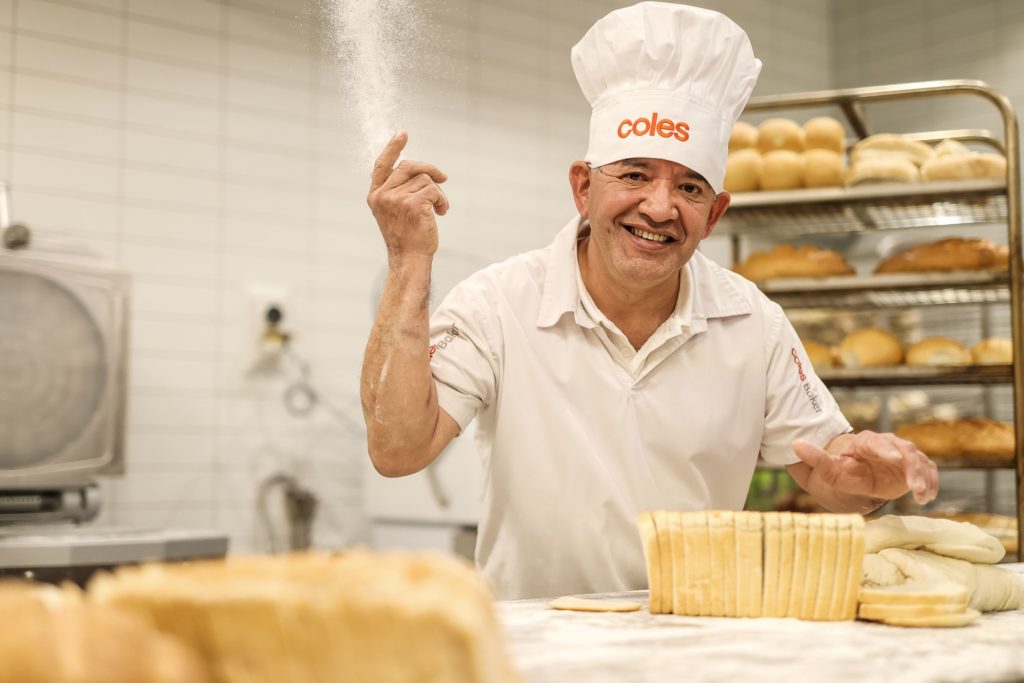
Removing tonnes of salt from Aussie diets
Coles has reduced the salt content of its white loaves and rolls by up to 25 percent. The new recipes have resulted in more than 76 tonnes of salt being removed from 46 Coles in-store bakery products every year. This is the equivalent of two semi-trailer loads.
Some of the supermarket’s most popular breads now contain as little as 274mg sodium per 100g. The old recipe contained 375mg per 100g. The team behind the new recipe say their aim was to make the change without customers noticing. And apparently they haven’t.
Heart Foundation Group CEO, Adjunct Professor John Kelly, has welcomed the new bread. He says it’s a step in the right direction towards reducing hidden salt in common foods.
“More than 6.2 million Australians live with high blood pressure,” he says. “It’s known as a ‘silent killer’; its symptoms are often not noticeable until people have it checked by their doctor. But it puts them at higher risk of a heart attack or stroke.”
Currently, Australians eat double the recommended maximum of 5g salt; around a teaspoon a day. Kelly says that reducing salt levels in some of our everyday foods can help improve health, as can regularly eating more heart-healthy vegies, fruits and whole grains.
Want to keep up to date with all the latest food news headlines each week? Just sign up for our newsletter in the box below. You can also follow us on Facebook and Instagram. We’ve got more good food news to inspire and entice you next week. So stay tuned!


